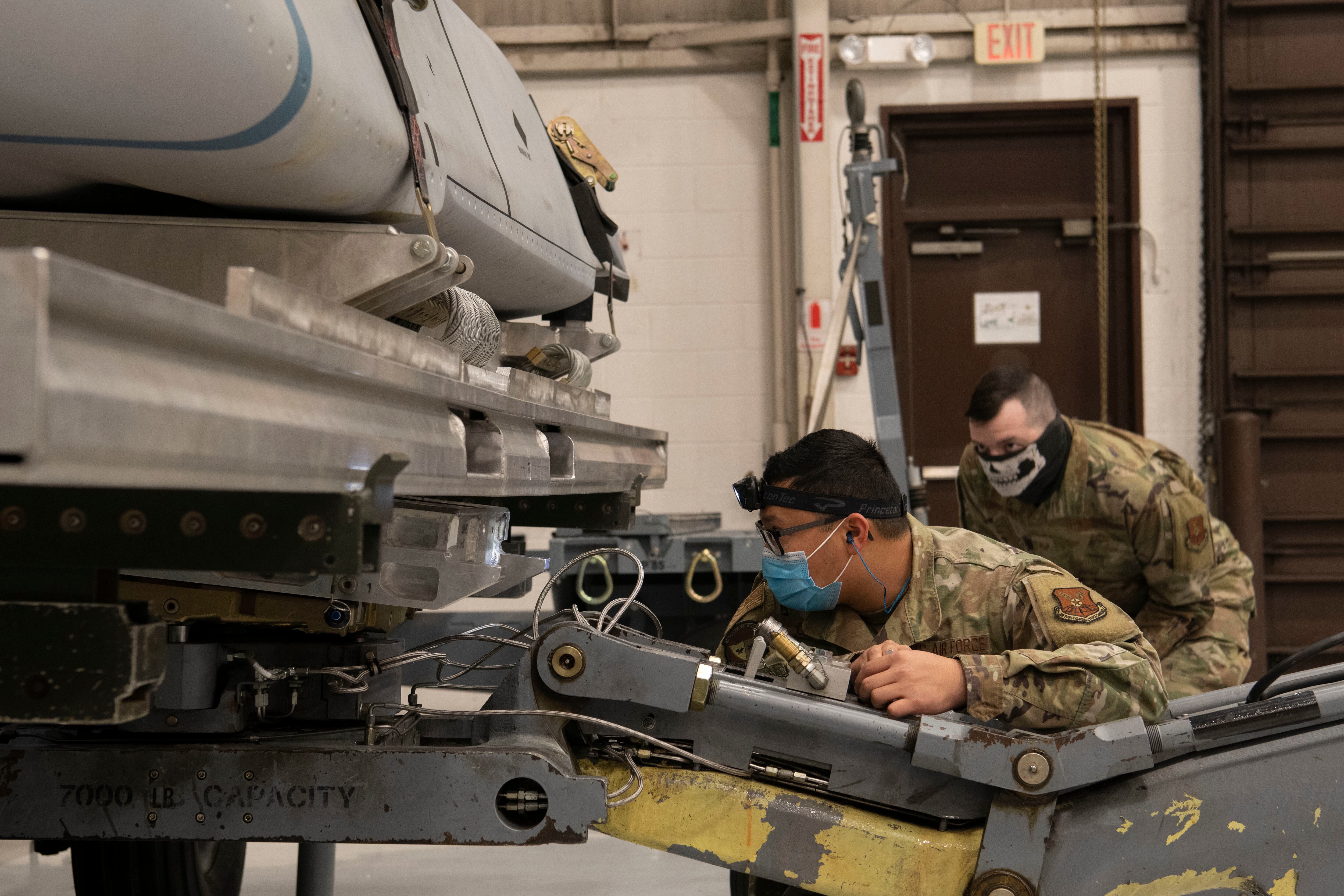U.S. Strategic Command forces, including bombers such as the B-52 Stratofortress, on Tuesday began the annual nuclear command and control exercise known as Global Thunder.
STRATCOM, in a Monday news release, said Global Thunder 21 provides “realistic training activities against simulated targets” to allow forces to train in all mission areas, but particularly focusing on nuclear readiness.
It also involves personnel from the U.K. and Australia, who became part of senior leadership teams and provide experience on subjects including policy support, deterrence and information operations.
Portions of the exercise are taking place at multiple locations, including STRATCOM’s headquarters at Offutt Air Force Base in Nebraska, Whiteman Air Force Base in Missouri and Barksdale Air Force Base in Louisiana.

“This exercise employs global operations in coordination with other combatant commands, services, appropriate U.S. government agencies, and allies to deter, detect and, if necessary, defeat strategic attacks against the United States and its allies,” STRATCOM said in the release.
Stephen Losey is the air warfare reporter for Defense News. He previously covered leadership and personnel issues at Air Force Times, and the Pentagon, special operations and air warfare at Military.com. He has traveled to the Middle East to cover U.S. Air Force operations.





